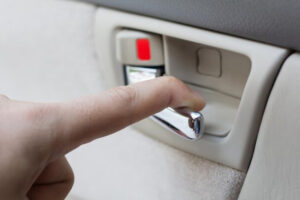Unlocking Tax Benefits: The Comprehensive Guide to Car Donation Deductions

Image Source: amazonleasing.com
Embracing the Joy of Giving: Your Path to Tax Savings
Have you ever considered transforming your old car into a beacon of hope for someone in need, all while reaping some financial rewards yourself? This guide will navigate you through the labyrinth of car donation deductions, ensuring you maximize your tax benefits while supporting a worthy cause.
Imagine this: you have an aging vehicle, gathering dust in the driveway. Maybe it’s a classic Audi, once the epitome of luxury, now a relic of times past. Donating this vehicle can not only clear your space but also bring a significant tax deduction, provided you know the ropes.
Understanding the Basics of Car Donation
Before diving into the complex waters of tax deductions, it’s crucial to grasp the ABCs of car donation. Essentially, when you donate a car to a qualified charitable organization, you’re potentially eligible for a tax deduction. However, it’s not as simple as just handing over the keys and claiming a deduction. The actual amount you can deduct depends on several factors, including how the charity uses the vehicle and the fair market value of the car.
Consider Jane’s story. She had an old Audi, still in decent condition. Rather than trade it in for Audi lease specials, she opted to donate it. The charity used her Audi for transporting supplies, which allowed Jane to claim a deduction based on the car’s fair market value.
Navigating the Valuation Maze
Determining the fair market value of your donated vehicle can be as tricky as finding the best deal on a car lease. It’s not just about what you think the car is worth; it involves understanding how the IRS views valuation.
For vehicles worth less than $500, the process is relatively straightforward. You can claim the lesser of the fair market value or $500 without too much hassle. But, if your car’s value exceeds this amount, things get more complicated.
Imagine Tom, who decided to donate his old Audi instead of exploring new Audi leasing options. He thought his car was worth $4,000, but the charity sold it for $3,500. In this case, Tom’s deduction is limited to the $3,500 sale price, not the $4,000 he initially estimated.
The Importance of Documentation
In the world of car donations, paperwork is king. Just like how you’d keep records for vehicle maintenance or lease agreements, maintaining proper documentation for your donation is critical. This includes the title transfer, a receipt from the charity, and a Form 1098-C if your deduction is over $500.
Let’s say Emily donated her Audi, which she originally considered for a lease trade-in. She meticulously kept all her documents, making her tax filing seamless. Her neighbor, on the other hand, overlooked this crucial step and faced challenges when claiming his deduction.
Maximizing Your Deduction
To truly benefit from your car donation, understanding the nuances of tax laws is essential. This means knowing whether to itemize deductions and how the charity’s use of the vehicle impacts your deduction amount. For instance, if the charity sells the car immediately, your deduction is limited to the sale price. However, if they use the car for their mission, you can claim a higher amount.
Consider Sarah’s experience. She donated her Audi, which she initially thought of replacing through an Audi lease special. The charity used her car for delivering meals to the elderly. Because of this, Sarah was able to claim a deduction based on the car’s fair market value, which was higher than the average resale value.
Pitfalls to Avoid
When donating a car, there are several pitfalls to be wary of. First, ensure the charity is IRS-approved to accept vehicle donations for tax deductions. Secondly, be realistic about your car’s value. Overestimating it can lead to issues with the IRS.
Remember Bill? He inflated the value of his Audi, which he had considered for an Audi lease deal, to boost his deduction. This red flag led to an audit, complicating what could have been a straightforward tax benefit.
Real-Life Success Stories
Let’s look at some real-life examples to illustrate the potential benefits and pitfalls of car donation deductions.
Case Study 1: The Overestimator
Mark, an avid car enthusiast, owned a decade-old Audi. He was eyeing the latest Audi lease specials but decided to donate his old car instead. Convinced of its high value due to sentimental reasons, he claimed a $5,000 deduction. However, the charity sold the car for just $3,000. This discrepancy caught the IRS’s attention, leading to an audit. Mark learned the hard way that realistic valuation is key in car donation deductions.
Case Study 2: The Meticulous Donor
Linda, a retired teacher, donated her Audi to a local charity that used it to transport supplies for community events. Aware of the importance of documentation, she meticulously kept all the necessary paperwork, including the 1098-C form. When tax season arrived, Linda smoothly claimed a deduction equal to the car’s fair market value, significantly reducing her taxable income. Her attention to detail and understanding of the IRS rules made her car donation experience a success.
The Bottom Line
Donating your car can be a win-win: you support a good cause and potentially gain a tax advantage. However, it’s not as simple as just handing over your keys. Understanding the intricacies of car donation deductions, from valuation to documentation, is crucial. Approach this process with the same diligence as you would when exploring Audi lease specials or any major financial decision.
With careful consideration and adherence to IRS guidelines, your generous act of donating a car can also become a smart financial move. Remember, it’s not just about the tax benefit; it’s about making a difference while reaping some rewards along the way.




